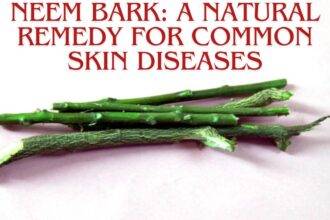Introduction:
Decoding the Mystique: Unveiling Safed Musli’s Powerful Role in Boosting Male Energy”

In the realm of natural wellness, Safed Musli has long been shrouded in mystique, with claims of enhancing male energy circulating for centuries. This article aims to unravel the secrets behind Safed Musli’s reputation, exploring its role in boosting energy levels for men and separating fact from fiction.
Is Safed Musli’s a testosterone booster?
Safed Musli has been traditionally believed to have potential effects on testosterone levels, making it a subject of interest in the realm of natural testosterone boosters. Testosterone is a key male sex hormone that plays a crucial role in various physiological functions, including energy levels, muscle mass, and overall well-being.

Some studies and anecdotal evidence suggest that Safed Musli may influence testosterone production, contributing to its reputation as a natural testosterone booster. The herb is thought to contain bioactive compounds that could potentially impact hormonal balance, including the regulation of testosterone.
However, it’s important to note that the scientific evidence supporting Safed Musli as a testosterone booster is limited and the research in this area is still in its early stages. More comprehensive studies are needed to establish a clear understanding of the herb’s effects on testosterone levels and to determine its efficacy and safety as a testosterone-boosting supplement.
Individual responses to Safed Musli can vary, and its impact on testosterone levels may depend on various factors, including dosage, duration of use, and individual health conditions. Before considering Safed Musli or any herbal supplement as a testosterone booster, it is advisable to consult with a healthcare professional to ensure its safety and suitability for your specific health needs.
Is Safed Musli’s better than Shilajit?
Safed Musli and Shilajit are both traditional herbs in Ayurvedic medicine, each with its unique set of potential health benefits. The comparison between Safed Musli and Shilajit depends on the specific health goals or concerns one may have. Here are some key differences:

- Primary Benefits:
- Safed Musli: It is often associated with enhancing vitality, stamina, and energy levels. It’s also believed to have adaptogenic properties, helping the body cope with stress.
- Shilajit: Known for its rich mineral content, Shilajit is believed to support overall well-being, boost energy, and contribute to the body’s resilience. It’s also considered a rejuvenating substance.
- Composition:
- Safed Musli: It primarily contains saponins, alkaloids, and flavonoids. These compounds are believed to contribute to its potential health benefits.
- Shilajit: It is a sticky resin that contains a complex mixture of minerals, fulvic acid, and other organic compounds. The high mineral content is often highlighted as a key aspect of its nutritional profile.
- Hormonal Influence:
- Safed Musli: Traditionally believed to influence testosterone levels, which can contribute to increased energy and vitality in men.
- Shilajit: Also associated with potential effects on hormones, including a reported impact on testosterone levels, but the scientific evidence is still evolving.
- Adaptogenic Properties:
- Safed Musli: Known for its adaptogenic properties, helping the body adapt to stress and maintain balance.
- Shilajit: Also considered an adaptogen, supporting the body’s ability to respond to stressors.
- Usage and Form:
- Safed Musli: Typically consumed as a powdered supplement or in capsule form.
- Shilajit: Often found in a resin form, but can also be available in capsules or powdered form.
It’s important to note that individual responses to these herbs can vary, and their effectiveness may depend on various factors such as dosage, quality, and individual health conditions. Before incorporating either Safed Musli or Shilajit into your routine, it’s advisable to consult with a healthcare professional to ensure their safety and appropriateness for your specific health goals. Additionally, considering the lack of extensive clinical research on these herbs, it’s crucial to approach their use with a balanced perspective and rely on reputable sources of information.
What are the disadvantages of Safed Musli’s?
While Safed Musli’s (Safed Musli or Chlorophytum borivilianum) is generally considered safe for consumption and has been traditionally used in Ayurvedic medicine, there are a few potential disadvantages or considerations associated with its use. It’s important to note that individual responses can vary, and it’s advisable to consult with a healthcare professional before incorporating Safed Musli’s into your routine. Here are some potential disadvantages:

- Limited Scientific Research: While white musli has a long history of traditional use, there is still limited scientific research on its safety and efficacy. More comprehensive studies are needed to establish its potential benefits and to understand any long-term effects or interactions.
- Dosage and Purity: The appropriate dosage of white musli can vary, and consuming excessive amounts may lead to adverse effects. It’s crucial to follow recommended guidelines and choose high-quality, pure sources to avoid contaminants.
- Potential Allergic Reactions: Some individuals may be allergic to certain compounds found in white musli. Allergic reactions could include skin rashes, itching, or gastrointestinal discomfort. If you have a history of allergies, it’s wise to perform a patch test or consult with a healthcare professional before using it.
- Interaction with Medications: White musli may interact with certain medications or medical conditions. Individuals taking prescription medications or with pre-existing health conditions should consult with a healthcare provider to ensure there are no potential adverse interactions.
- Digestive Issues: In some cases, white musli supplements might cause gastrointestinal discomfort, including bloating, gas, or diarrhea. Adjusting the dosage or discontinuing use may alleviate these symptoms.
- Not Recommended for Pregnant or Nursing Women: The safety of white musli during pregnancy and breastfeeding is not well-established. Pregnant or nursing women should avoid using it unless advised otherwise by a healthcare professional.
- Quality and Contamination: The quality of white musli supplements can vary, and there is a risk of contamination if the source is not reputable. Choosing products from reliable manufacturers and ensuring purity is essential.
It’s important to approach the use of white musli with caution and to prioritize informed decision-making. Consulting with a healthcare professional, especially if you have underlying health conditions or are taking medications, is crucial to ensure the herb’s safety and appropriateness for your specific circumstances. Additionally, being aware of any changes in your body and promptly seeking medical advice if you experience adverse effects is essential.
Who should avoid Safed Musli’s?
While Safed Musli (Chlorophytum borivilianum) is generally considered safe for many individuals when used appropriately, there are certain groups of people who should exercise caution or avoid its use altogether. It’s advisable to consult with a healthcare professional before incorporating Safed Musli into your routine, especially if you fall into any of the following categories:
- Pregnant and Breastfeeding Women: The safety of Safed Musli during pregnancy and breastfeeding is not well-established. Pregnant and breastfeeding women should avoid its use unless advised otherwise by a healthcare professional.
- Individuals with Hormone-Related Conditions: Safed Musli is believed to influence hormonal balance, particularly testosterone levels. Individuals with hormone-related conditions, such as hormonal cancers (like breast or prostate cancer) or endocrine disorders, should avoid Safed Musli due to potential interactions.
- People with Allergies: Some individuals may be allergic to certain compounds present in Safed Musli. If you have a history of allergies, it’s advisable to perform a patch test or consult with a healthcare professional before using it.
- Those with Gastrointestinal Issues: Safed Musli supplements might cause gastrointestinal discomfort in some individuals, including bloating, gas, or diarrhea. Individuals with pre-existing gastrointestinal conditions should be cautious and consult with a healthcare provider.
- Individuals Taking Medications: Safed Musli may interact with certain medications, including those for diabetes, blood pressure, or hormonal therapies. If you are taking prescription medications, it’s important to consult with a healthcare professional to avoid potential adverse interactions.
- People with Liver or Kidney Issues: As with any supplement, individuals with liver or kidney conditions should exercise caution. Safed Musli may affect these organs, and consulting with a healthcare provider is advisable.
- Children: The safety and appropriate dosage of Safed Musli for children are not well-established. It’s generally recommended to avoid its use in children unless advised otherwise by a healthcare professional.
- Those Planning Surgical Procedures: Safed Musli might have effects on blood sugar levels and hormonal balance, so individuals planning surgical procedures should inform their healthcare providers about its use, as it could potentially interfere with anesthesia or other aspects of the surgery.
It’s important to note that individual responses to supplements can vary, and potential risks may depend on factors such as dosage, duration of use, and individual health conditions. Before using Safed Musli or any herbal supplement, it’s crucial to consult with a healthcare professional to ensure safety and appropriateness for your specific health circumstances.
Conclusion:
As we unravel the mystique surrounding Safed Musli, it becomes evident that this ancient herb holds promise in the realm of male energy enhancement. While more research is needed to solidify its efficacy, the centuries-old wisdom and emerging scientific findings suggest that Safed Musli may indeed play a significant role in boosting male energy levels.





